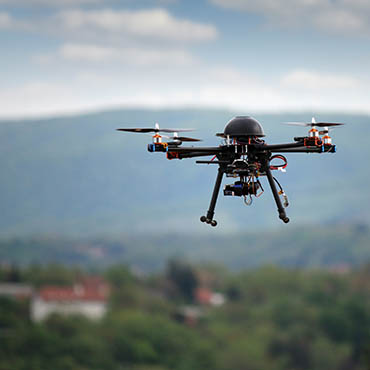Do robots dream of big government?
Law professor Ryan Calo suggests getting out in front of the regulatory gap in robotics by establishing a Federal Robotics Commission.

As civilian drones, self-driving cars, high-speed financial trading algorithms, quasi-autonomous armed sentries, and other robotics applications become increasingly routine, state and local governments, federal agencies, and civil and criminal courts might find themselves scrambling to keep up.
While sensational controversies about drones make for titillating news stories and compelling thought experiments, there isn't really much in the way of actual cases of individuals looking to chase drones off their property, or trying to sue Google because they got whiplash in a collision with a driverless car.
A new paper from the Brookings Institution by University of Washington law professor Ryan Calo suggests getting out in front of the regulatory gap in robotics by establishing a Federal Robotics Commission. In a new paper, Calo suggests that a new agency wouldn't itself regulate robotics, but rather would aggregate and supply expertise to rulemaking agencies that have robotics issues under their purview, but lack the knowledge base to cope.
For example, the National Highway Traffic Safety Administration had to turn to NASA in 2011 for help investigating Toyota software when a spate of accidents prompted worries that a glitch was causing vehicles to accelerate suddenly and without warning.
“Under extraordinary circumstances, the best and brightest at NASA can take a break from repairing space stations or building Mars robots to take a look at the occasional Toyota. But this is not a sustainable strategy in the long run," Calo writes.
Calo envisions a Federal Robotics Commission supplying advice on medical devices to the Food and Drug Administration, the Federal Communication Commission on cognitive radios, which can dynamically locate available spectrum, the Department of Transportation on driverless cars, the FAA on drones, and the Securities and Exchange Commission on flash-trading algorithms.
Robots and robotics applications will require specialized regulatory approaches, Calo argues, because of the way their operation affects the tangible world. "Robots are organized to act upon the world physically, or at least directly. This turns out to have strong repercussions at law, and to pose unique challenges to law and to legal institutions that computers and the Internet did not," Calo writes.
He imagines a small, multi-disciplinary agency staffed by engineers, computer scientists, lawyers and policy experts to help map out policy responses to the inevitable problems of accidents, trespassing, privacy violations, and other issues that arise from having robots drive cars, perform surgery, and police demilitarized zones.
"The alternative, I fear, is that we will continue to address robotics policy questions piecemeal, perhaps indefinitely, with increasingly poor outcomes and slow accrual of knowledge," Calo writes.






